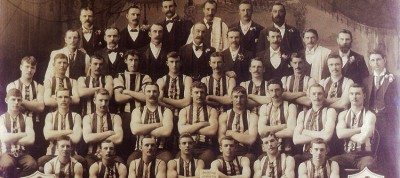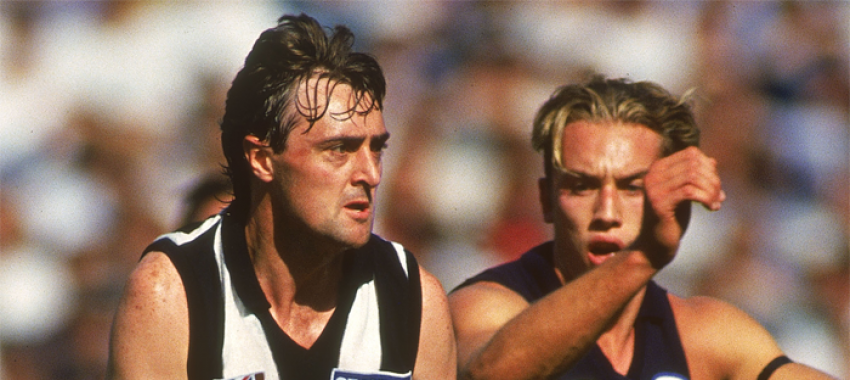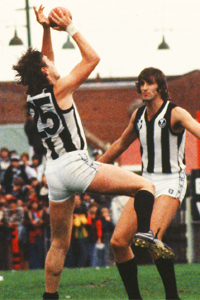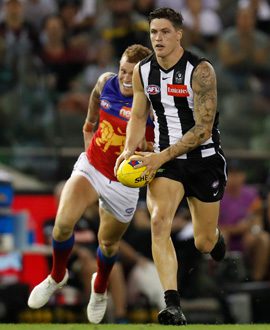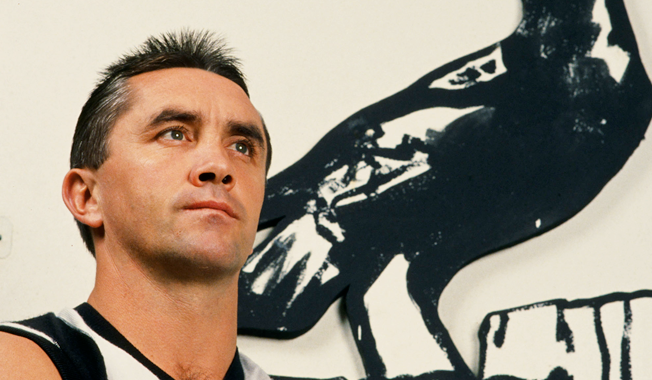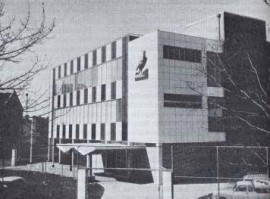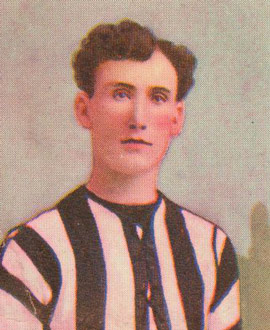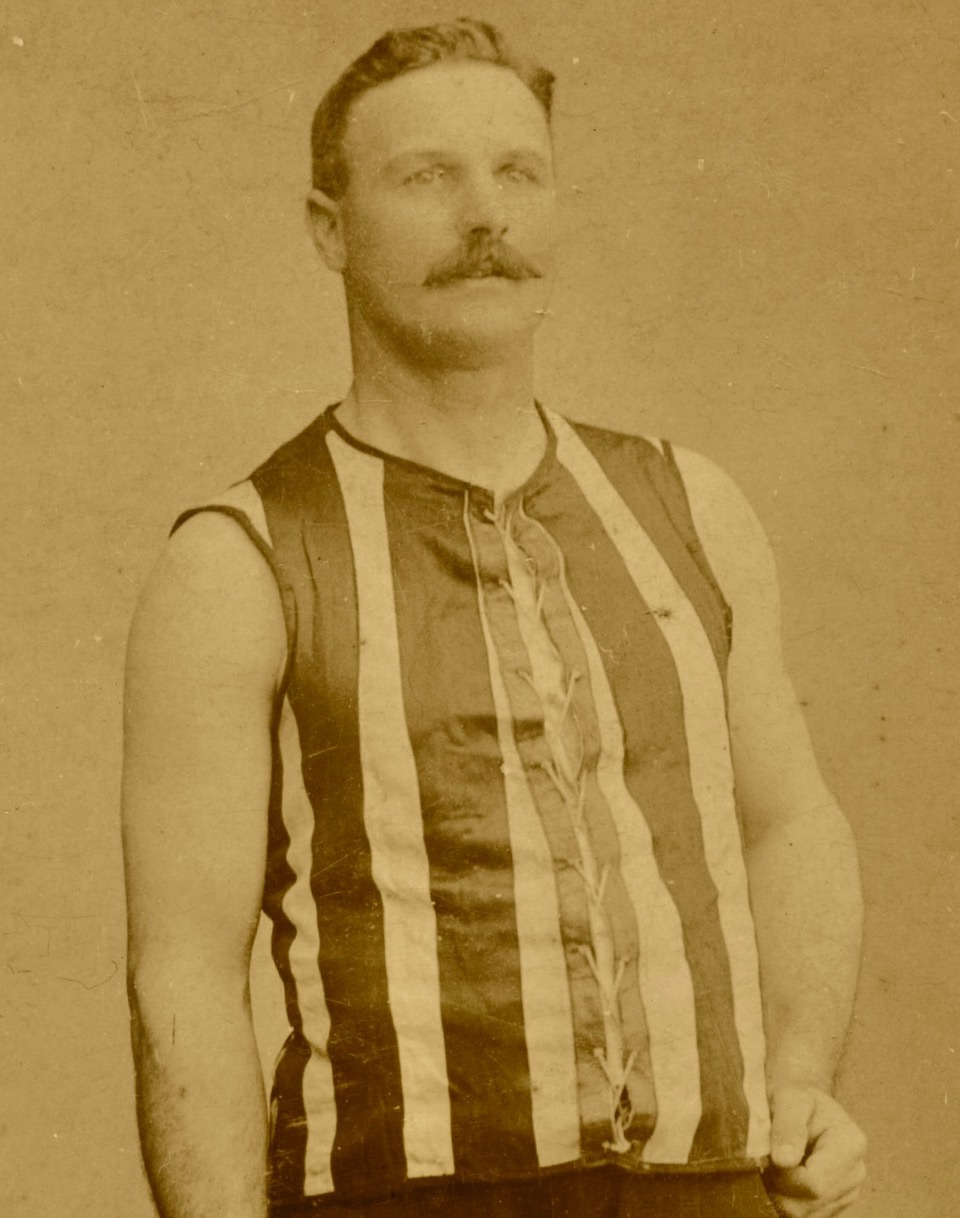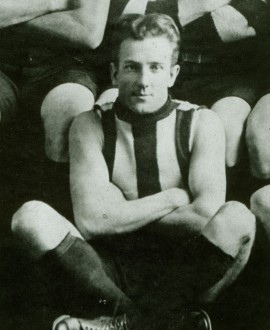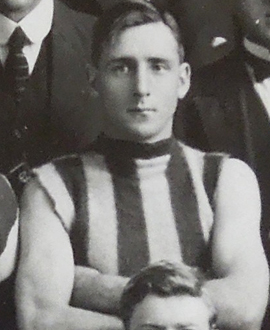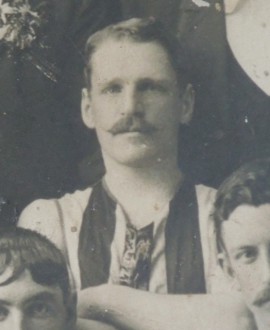For a club entwined in Grand Final tradition – for better or worse – it was appropriate that Collingwood played in the inaugural Premiership playoff on a stifling, spring afternoon at East Melbourne in 1896.
At the end of the season, Collingwood and South Melbourne could not be separated on the VFA ladder. Each had won 14 matches. Even their score lines were eerily alike – Collingwood 86 goals for, 55 against and South 86 for, 55 against. The solution to break the deadlock was to play a deciding contest – football’s first Grand Final.
Most clubs would have been content with being competitive in their fifth season. But anything less than a pennant would have been deemed a failure for the Magpies. For what the working-class club lacked in social advantages, it made up for in determination, discipline, and an overwhelming desire to be the best.
The Australasian acknowledged “the rapid advancement of the Collingwood team … is a credit to everyone connected to the club”.
The Mercury predicted “the Magpie, instead of being perched among the higher branches (would soon be) flapping his wings triumphantly on the top of the tree”.
That prose would prove to be prophetic.
There were a number of reasons for this. For a start, the team had transformed into a cohesive unit. Captain Bill Strickland, Bill Proudfoot, Archie Smith, Jack Monohan, Charlie Pannam, Dick Condon, ‘Lardie’ Tulloch and Fred Hailwood played important roles.
Just as crucial was the club’s unprecedented emphasis on fitness. Trainer Wal Lee transformed Collingwood into the fittest team, creating the prize of a guinea (1 pound, 1 shilling) for the player who attended the most training sessions. It became a tradition that, even allowing for inflation, lasted for more than a generation.
For most of the first Grand Final the contest looked every bit as even as the season. South Melbourne wrested the ascendancy during the third quarter and, according to the Argus, “their superiority seemed so pronounced that the game was apparently all over”.
But only a few were privy to Collingwood’s plan. Just before they left the room at half-time, Strickland had implored his men to “take it easy” in the third quarter, to conserve their energy. They heeded his advice, and this fitness edge in the final stanza would prove decisive.
So, too, did Strickland's decision to move star centre half-back Jack Monohan to centre half-forward. Monohan took three towering marks in the first few minutes of the final term and, even though he missed all three shots at goal, his aerial presence spooked the South defenders.
Even more unsettling was the Magpies' renewed run and vigour. The Collingwood catch cry during that last quarter was 'Faster, faster' and the players followed the instructions perfectly. They finished the game all over the top of their tiring opponents, but the result was in doubt right up until the final minutes, when a free kick and goal to Daniel Flaherty gave the Magpies a one-goal victory.
It produced what historian Richard Stremski would call “an epidemic of merriment”. Only another flag 94 years and three days later would match the euphoria in Collingwood. The local fans were ecstatic. More than 2000 people turned out to the victory celebration at the Town Hall. Functions, smoke nights, banquets and balls were held in the players' honour, or to toast the triumph. One such event featured more than 80 speeches!
The celebrations lasted the rest of the year. Local politicians switched the hyperbole to overdrive, with one claiming the Premiership had "lifted Collingwood in the eyes of the world". The Mercury claimed “the deeds that won the premiership were as heroic as the deeds that won an Empire”. As parochial as it sounded, Collingwood was building its own football empire.
Remarkably, though, that was Collingwood's last game in the VFA. The Magpies had long been courted by the other power clubs wanting to form a breakaway competition called the Victorian Football League, and late in the season had finally agreed to join. Ironically, the meeting at which the new competition was officially ratified was held the night before the Collingwood-South Melbourne Grand Final.
So new adventures and new challenges awaited the Collingwood Football Club. But late in 1896 nobody was too concerned with the future: they were too busy celebrating Collingwood's first-ever Premiership.
1896 Grand Final
Collingwood 4.3 4.4 4.6 6.9
Sth Melb 2.1 3.6 5.9 5.10
Goals
Coll – Gregory, Hall, Condon, Dowdell, Hailwood, Flaherty
Sth – McKay 2, Pleass, J Adamson, Windley
Best
Coll – Monohan, Strickland, Pannam, Condon, Dowdell, Stock
Sth – McKay, Fraser, Gibson, Purdy, McArthur, Windley
Umpire: J J Trait
Crowd: Approx 12,000
Venue: East Melbourne Cricket Ground
Team
B: Gibbs Proudfoot McDonald
HB: Williams Monohan Dow
C: Pannam Strickland (c) Callaghan
HF: Smith Hailwood Gillard
F: Gregory Flaherty Callesen
R: Dowdell Stock Hall Dohrmann Condon


